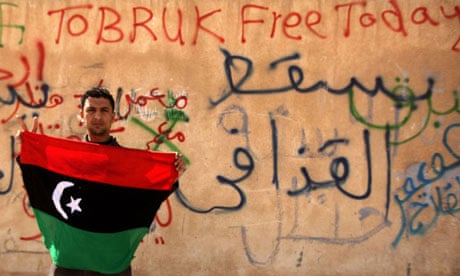The 192 UN member nations have suspended Libya from the UN human rights council in the latest international effort to halt the Gaddafi regime's violent crackdown on protesters.
The general assembly voted by consensus on the council's recommendation to suspend Libya's membership on the UN's top human rights body for committing "gross and systematic violations of human rights".
The resolution sponsored by Arab and African states also expressed "deep concern" about the human rights situation in Libya.
It is the first time any country has been suspended from the 47-member council since it was formed in 2006. Based in Geneva, the council is charged with strengthening the promotion and protection of human rights around the world.
Libya's suspension from the rights body comes after the UN security council and US imposed sanctions on Gaddafi, his family and top associates, and the Arab League, the African Union and the Organisation of Islamic Conference's condemnation of Libya's deadly attacks on civilians.
Tuesday's vote suspending Libya from the council does not permanently remove it from the body, but prevents it from participation until the general assembly determines whether to restore the country to full status.
At a gathering of the UN human rights council before last week's vote there, Libyan diplomats to the UN in Geneva were given a standing ovation as they announced they were renouncing Gaddafi's government. They, like Libyan diplomats to the UN in New York, have supported the moves against the regime.
In other UN action, the 15-member security council slapped an arms embargo, a travel ban and assets freeze on Gaddafi, his family and top associates during an emergency weekend meeting. It also agreed to refer the case to the international criminal court in The Hague, a permanent war crimes tribunal, to investigate and prosecute possible crimes against humanity.
The UN secretary-general, Ban Ki-moon, told the general assembly before its Tuesday action the collective acts send a strong message that "that there is no impunity, that those who commit crimes against humanity will be punished".
Libyan authorities must end the violence and respect the human rights and aspirations of their people, said Ban. "The transition to a new democratic system of governance should start now."
Suspension of Libya from the rights council was supported by the US, which has imposed its own sanctions on the Gaddafi government.
The US secretary of state, Hillary Clinton, said: "The general assembly today has made it clear that governments that turn their guns on their own people have no place on the human rights council."
"The international community is speaking with one voice and our message is unmistakable: these violations of universal rights are unacceptable and will not be tolerated."
